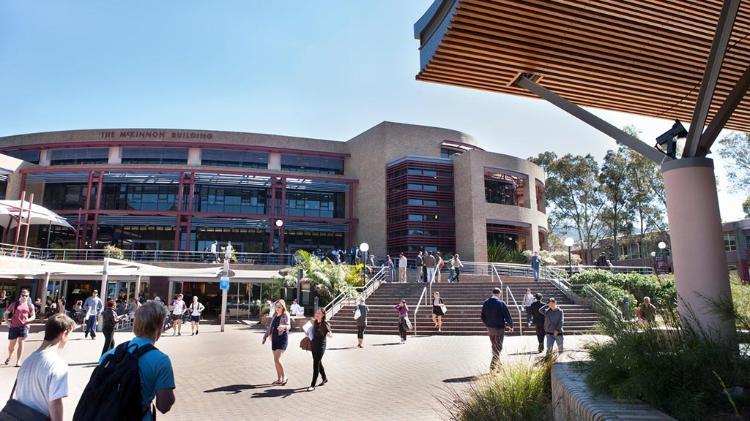Answering your questions about postgrad study
We asked Sydney Business School, UOW students how they fit study into their busy lives, what keeps them motivated and much more.
Learn more about postgraduate studyAlright, let's give it a go. We'll just take it from there.
What made you go back to study?
I'd been working in industry and felt like I needed a little bit of upskilling in the business side of things. Doing an MBA I felt like was the next most natural step in education.
Well, my undergraduate was a long time ago. I started realising that I was missing something, I think, to get me to that next level.
I wanted to show my son that if you put your mind into something, it's actually doable and possible.
Well, I was a uni dropout. It was always in the back of my mind that at some point I need to go back to uni and finish off a degree. The MBA program just became very relevant to me and my career.
How do you stay focused when there's so much going on?
You always have to come back to what your purpose. At the start of each day, I have to go, why are we here? And we're here for our students, and we're here to change the world.
You work and you study and you have assignments, you need serious time management.
I'm sure you don't follow that all the time though.
Not all the time, you have to have some fun here and there.
Will this degree get you a pay rise? I bloody hope so. If the MBA makes me more valuable, more confident, then I can deliver more value with more confidence. That's bound to translate into better remuneration. So yes.
Be honest, are online classes boring?
I think that the tutors really know how to engage you in a way online that makes it feel like you're in the class.
I don’t have to travel. This is really convenient. It'll work around my work life and the breakout rooms being able to make relationships in those smaller settings. Absolutely fantastic.
You're meeting people in different sectors. It's that network. Never boring, never.
Have you ever wanted to give up? What kept you going?
Yes at some point I did want to give up. All you need is that little bit of hope. Once you believe you can do it, you can.
Honestly, what kept me going was the camaraderie.
I think there was definitely a time when I wanted to give up. I contacted my tutor Valerie and she was so incredibly supportive that it made me go, you know what, yeah, everything's going to be okay.
One piece of advice to someone considering studying, don't be scared to start. The students and the network that you build will help you keep pushing through your subjects and through your studies as well.
Find the right course and just do it. I love that. Just do it, don't think too much about it. Just do it.


/filters:format(jpg)/prod01/channel_8/sydney-business-school/assets/contributed/strategic-marketing-amp-communications/clps/SBS-banner---Ally.jpg)
/filters:format(jpg)/prod01/channel_8/sydney-business-school/assets/contributed/strategic-marketing-amp-communications/clps/CBD-tour-banner2.jpg)
/filters:format(jpg)/prod01/channel_8/sydney-business-school/assets/contributed/magazines/the-stand/2023/banking-header.jpg)
/filters:format(jpg)/prod01/channel_8/sydney-business-school/assets/contributed/faculty-of-business-and-law/sbs/2Masters2Years-Banner.jpg)





